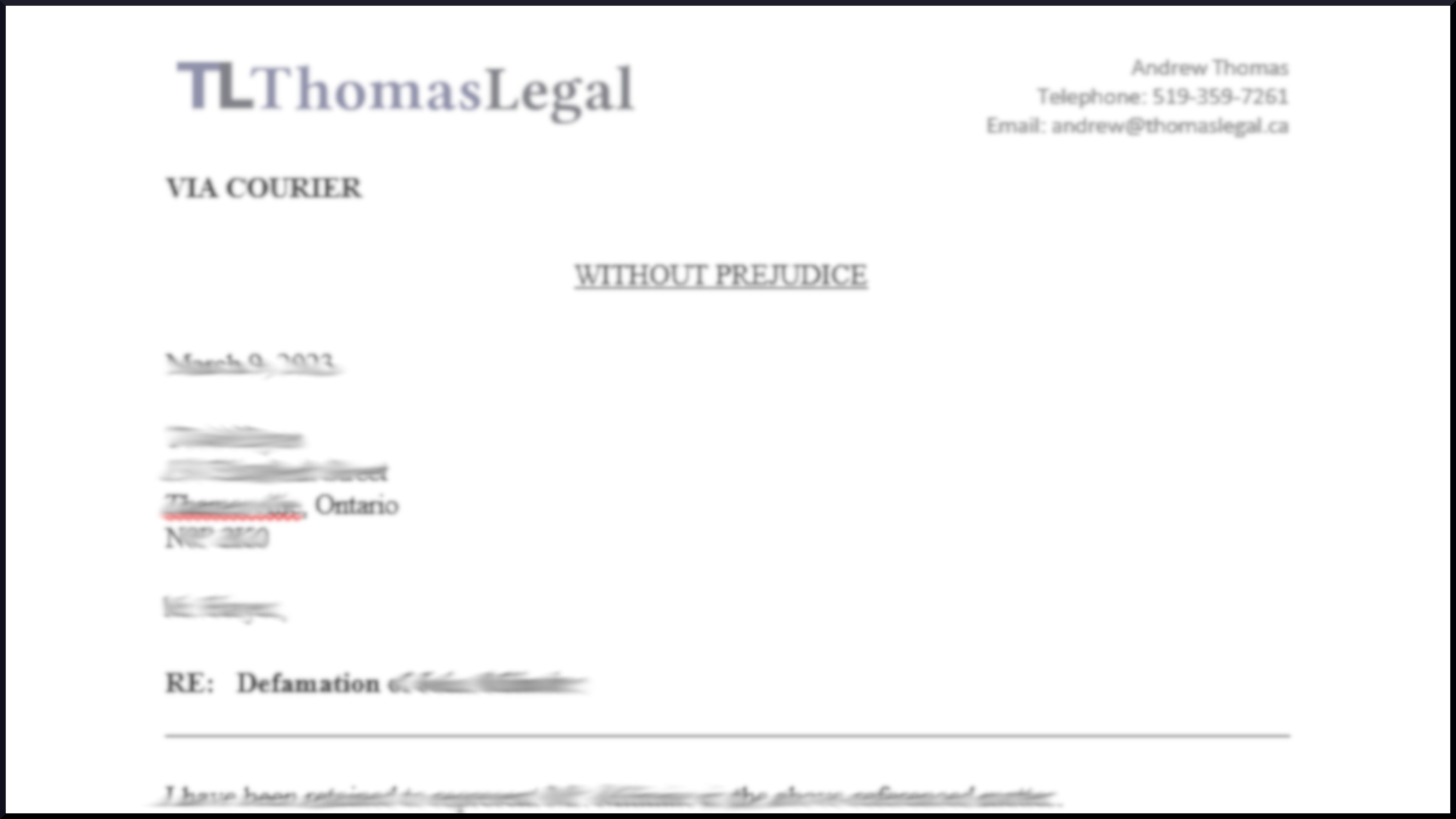Articles
Editing
Editing services are available upon request.
We are proficient in the following styles:
- Chicago
- APA
- AMA
- Vancouver
- Bluebook
- McGill
- OSCOLA
- AP
Civil procedure professors: Please tell your students to read this ruling
I've had to sit through motion hearings in which most of the time is spent by the motions judge patiently explaining to a young lawyer how Small Claims Court works.
Professors devote no time to the inferior court. (One of my own intructors called it "kindergarten court.") I get it, but lawyers are going to continue wasting the court's time and their clients' money.

When malice came to wreck the "fair comment" defense: Sun Life et al. v. Dalrymple
Balancing free speech with reputation protection
Defamation law walks a fine line between safeguarding individual reputations and preserving the right to free expression. At its core, defamation occurs when a false statement of fact harms a person’s reputation. However, society recognizes that opinions—even critical ones—are essential to public discourse. This tension gave rise to the fair comment defense, which allows defendants to avoid liability if their statements qualify as honest, fair opinions based on disclosed facts.
A pivotal case in Canadian defamation law, Sun Life Assurance Co. of Canada et al. v. Dalrymple (1966 CanLII 18), clarified a critical limitation of this defense: malice can destroy it. This article summarizes the case, explains the fair comment defense, and dissects why malicious intent undermines its protections. By understanding Sun Life v. Dalrymple, individuals and businesses alike can better navigate defamation risks while exercising responsible free speech.
Practice note: Consent to Judgment
In an LSO webinar on Small Claims enforcement, Deputy Judge Marcel Mongeon suggested that parties might make use of a consent to judgment. This form of consent is commonly seen at Superior Court, but it never ocurred to me to make use of it at the lower court.
When drafting the Terms of Settlement (Form 14D), you might include language indicating that if the terms are not complied with, the parties consent to a summary judgment with costs and fees/disbursements included.
Including something akin to a draft order might better motivate the parties to obey the terms, and the consent might assist in the motion for a summary judgment.

How nasty can your Google Review be?
A couple in Ontario contracted Benchwood Builders to renovate their home. Things didn't go well, and Benchwood sought to place a lien on the property for unpaid bills.
When the couple discovered that Benchwood had posted photos of their home to showcase its work, the couple was not pleased.